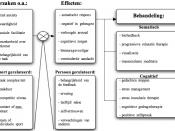Sports have been around for most of this century showcasing outstanding athletes around the world. Sports psychology has been around for most of this century in an effort to increase athletic performance. It has recently been heralded as the
performance revolution of the 1990s (White, 1996). The world of sports, in the United States, is a growing and ever evolving field. Sports psychology has grown and evolved
right along with it. Through sports psychology, the world has a better understanding of the importance of mental stability and the benefits of mental preparation in the world of sports. Sports psychology involves a documented approach to assisting an athlete on reaching his or her best possible performance.
Sports psychology is used in practically every level of sporting
activities from little leagues to professional. Sports psychology is not limited to professional sports but it also encourages children, and yes sometimes even coerces them, to join various teams and to participate in a variety of athletic activities.
In many cases, the love of the game sometimes turns into the love of money and the sport is no longer pure or the game is no longer for fun. Participating in a sport, at an early age, teaches many lessons and installs many values essential for succeeding in life. Being a professional athlete is probably viewed as the dream life, but being a professional athlete requires more mental preparation than the average occupation. Professional athletes have to deal with many other situations than just their sport. They take on the responsibility of being a role model and the pressure of being watched nationally day and night. Millions of children complement thousands of professional athletes in this country. Children's activities range from little league baseball, to swimming to gymnastics to school team participation in basketball,



good
good
0 out of 0 people found this comment useful.